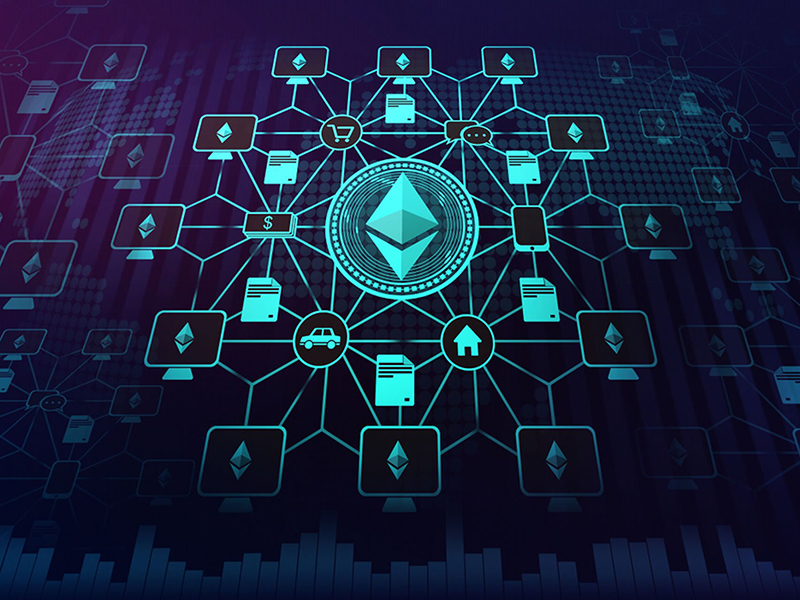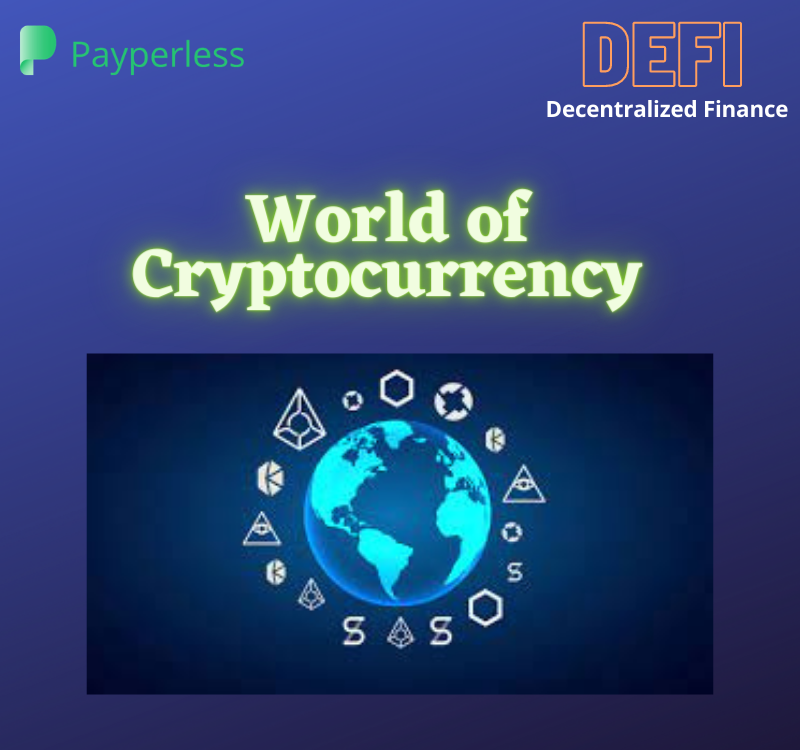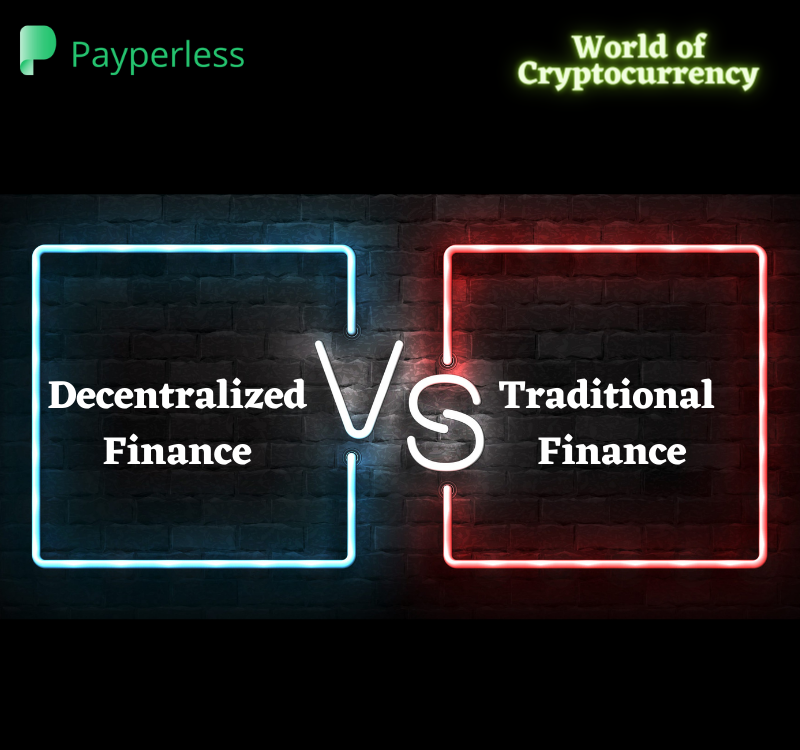DeFi: Everything You Need To Know About The New World Of Cryptocurrency

The world of finance has never been the same since cryptocurrency came into existence. Based on blockchain, it enabled financial transactions without any authoritative oversight and bureaucracy. This article discusses DeFi or Decentralized Finance, the new blockchain-based financial ecosystem and a landmark in the evolution of cryptocurrency.
While Decentralized Finance has provided individuals with a value proposition using viable financial tools without the need for an intermediary, it is still in its infancy. One of the significant features of DeFi or Decentralized Finance is its advantage to those who do not have the privilege or have been unable to access a conventional financial service. It promises to be a truly global and open financial system. The following sections dive deeper into its definitions, applications, and immense benefits it offers to various stakeholders.

What Is DeFi?
DeFi or Decentralized Finance is a system of financial products based on the blockchain network, works in a decentralized form, and is open to all without the presence of an intermediate agency. DeFi has no centralized authority or parties that can command and control the system, by the very definition. One of the most significant advantages of DeFi is eliminating human error because the entire ecosystem runs on automated systems and smart contracts.
Why DeFi Has Sparked A Revolution
Imagine a financial network that allows one to do everything possible with a conventional financial system. One can lend, borrow, loan, earn interest, and undertake similar activities, as with a bank but without providing identification or being at the mercy of the banking or any other central authorities. The minimal or zero transaction fee makes it even more lucrative.

To know how effective DeFi will be in the forthcoming future, it suffices to look at the roadblocks traditional finance faces, which DeFi does not.
- The entire premise of traditional banking or finance is based on profiling. Not everyone can be a part of it.There are long forms that need to be filled to prove eligibility.
- The banking or financial entity can, at its perusal, close down financial services at any time after providing minimal time as notification.
- There are charges for almost every financial activity in a traditional finance setup.
- The financial market is usually active within specified time limits. It depends on the time zones too.
- Even in the event of emergency money transfers, the wait remains long since there is human intervention.
Difference Between Decentralized Finance And Traditional Finance
The advent of blockchain technology and decentralized finance has revolutionized the world of finance in recent times and offers great advantages over the traditional or centralized financial ecosystem systems. Some of those are:

Ownership
- DeFi: The individuals have control over and own the money on a publicly accessible blockchain which is leveraged as a trusted and governing source for the functioning of the DeFi ecosystem.
- Traditional Finance: The bank is responsible for the upkeep and security of the money and may wind up the business in the event of bankruptcy. The financial relief provided to depositors is minimal.
Investments
- DeFi: The individual decides where and how they want their money to be spent and invested.
- Traditional Finance: It is up to the discretion of the investment firm as to how the money would be invested.
Accessibility
- DeFi: Probably the most significant advantage of the system is that it is accessible to everyone and everywhere, irrespective of geopolitical boundaries.
- Traditional Finance: Tightly controlled accessibility is a characteristic feature of conventional finance. The authorities decide to whom to provide banking and financial services based on ever-changing criteria.
Hours Of Work
- DeFi: It is always on and is never closed for a break or public holidays. One can access the service at any point of time during the day.
- Traditional Finance: There are fixed hours for business activities with day-offs.
Transparency
- DeFi: The ledgers are open for inspection to all. Blockchain is based on transparency and allows access to everybody to check up on the authenticity of the contract or code.
- Traditional Finance:The financial institutions are closely held entities, and their transactions are beyond the purview of the depositors. Managed assets are never made public unless deemed fit by the authorities themselves.
The Services Decentralized Finance (DeFi) Provide
Money transfer, yield farming or liquidity mining, stable coins, lending, and borrowing are some of the numerous services that decentralized finance provides cryptocurrency users and investors. Some of these services are listed below.
- Yield Farming Or Liquidity Mining: The functioning of yield farming is based on the automated market maker (AMM) model, which creates liquidity pools by leveraging smart contracts on the blockchain. Yield farming offers cryptocurrency holders rewards for locking up or holding their cryptocurrencies in a DeFi market, where users can stake or lend their cryptocurrency assets and generate high returns or rewards in the form of additional cryptocurrency or tokens.
- Transfer Of Money: Blockchain is designed in a manner where transactions take place in a matter of minutes. It is similar to sending an email. All one would need is to insert the ENS (Ethereum Name Service) name of the recipient. Also, it happens on a global scale.
- Streaming Of Money:This feature is particularly beneficial in the case of payments of salaries. The amounts get transferred in seconds. Streaming is also helpful when it comes to renting commodities.
- Stable coins: Bitcoins are known for their volatility and also affect Alt coins. Stable coins provide a viable solution to this issue. These currencies have their values pegged to stable fiat or other underlying assets whose values do not go through atrocious volatility. It helps people overcome challenging financial situations concerning their government-issued currencies.
- Lending And Borrowing: DeFi allows individuals to lend or borrow money like a conventional financial system. It can either be a peer-to-peer transaction or pool-based. The lender will be able to earn interest on the money borrowed by others.
One of the advantages of borrowing through DeFi is that there are no intermediaries. There is also no need to provide identifications. One simply has to put up collateral and ask for the money. In the event the borrower is unable to repay, the lender will automatically receive the collateral. An NFT (Non-Fungible Token) can also be used as collateral.
- Global Funds: There is an enormous amount of money under transaction globally through DeFi. As a lender, this is an ideal situation. One will have access to funds from across the world and at competitive rates. It improves access to loans as well as provides better interest rates to both lenders and borrowers.
- The Market That Never Sleeps: The online world never sleeps, unlike traditional financial services that work within fixed timings. The DeFi network is always open, spreading across time zones and continents. Such is the technology and its global acceptance that there is always someone ready to accept the trade. So, Setup your cryptocurrency wallet.
Final Words
While the crypto world is enthused concerning the rise of DeFi, the market is still nascent. As of March 2021, the total DeFi contracts are around $41 billion. That is because a few institutional changes still need to be undertaken before DeFi can become the ideal resort for depositors. One of them being the ever-increasing threat of disruption by malicious actors and their evolving methodologies. Nevertheless, the future looks promising, as DeFi continues to penetrate several sectors and industries, including but not limited to crypto, insurance, international finance, supply chain, etc.
References
- Ethereum. Decentralized Finance (DeFi).
- Sharma, R. (2021, March 24). Decentralized Finance (DeFi) Definition. Investopedia.
https://www.investopedia.com/decentralized-finance-defi-5113835
- Sandner, P. (2019, December 9). Decentralized Finance (DeFi): What Do You Need To Know. Philipp Sandner.
https://philippsandner.medium.com/decentralized-finance-defi-what-do-you-need-to-know-9cd5e8c2a48
- Conti, R. Schmidt, J. (2021, May 14). What You Need To Know About Non-Fungible Tokens (NFTs). Forbes.
https://www.forbes.com/advisor/investing/nft-non-fungible-token/
- Sharma, R. (2021, March 24). Decentralized Finance (DeFi) Definition. Investopedia.